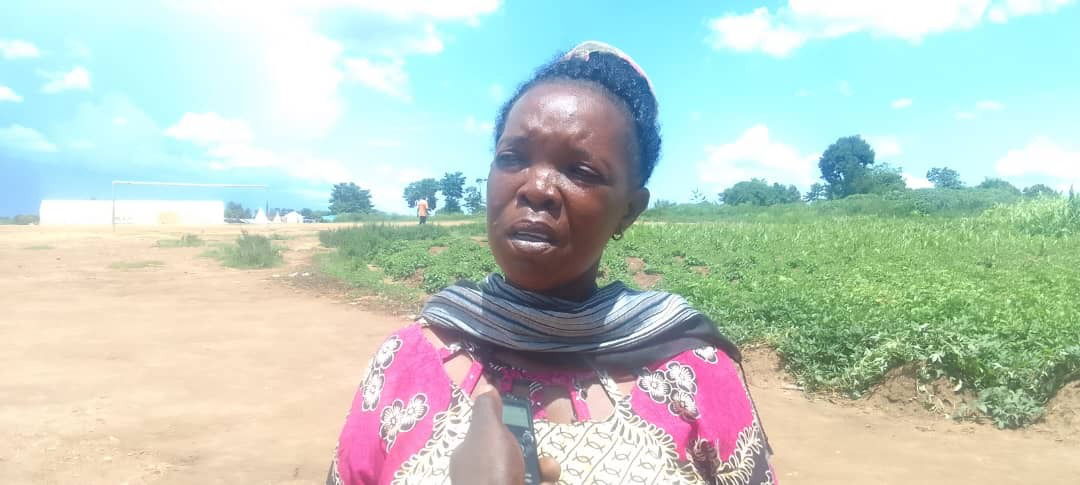Food Shortage Crisis Hits West Nile Refugee Settlements
In a distressing development, a severe food shortage crisis is currently devastating refugees in the West Nile sub-region.
This dire situation, which has left many without access to sufficient nourishment, is causing widespread concern among humanitarian organizations and the international community.
Justine Monyi, a resident of Village Tank 60 in the Bidibidi refugee settlement located in Yumbe district, shared her ordeal with our reporter on September 13, 2023.
She revealed that the United Nations High Commissioner for Refugees (UNHCR) has drastically reduced the monthly food rations from 12 kilograms per person to a mere 3 kilograms. Shockingly, some refugees have been completely cut off from receiving any food assistance.
Justine Monyi: "We used to receive 12 kilograms of food per month, but now it's only 3 kilograms, and some people get nothing. It's a heartbreaking situation."
This abrupt reduction in food aid has left countless refugees in a state of desperation. Christopher Michael Ide, a resident of Zone Two, Village Seven, expressed his concerns, stating that they are being told to cultivate food despite not having access to land for farming.
Christopher Micheal Ide: "We're being asked to farm, but where can we farm when there's no land available for us?"
The impact of this food shortage has been particularly harsh on vulnerable groups such as women and children, as noted by Betty Ide, another resident of Zone Two, Village Seven.

Betty Ide: "Women and children are suffering the most. It's heartbreaking to see them go hungry.
"Richard Acidri, the Assistant Community Services Officer in the Office of the Prime Minister, shed light on the root causes of this food crisis. He attributed it to global factors such as the ongoing conflict in Ukraine and Russia, as well as the lingering effects of the COVID-19 pandemic.
Richard Acidri: "The food shortage is a global issue caused by unforeseen circumstances like the war in Ukraine and Russia, along with the COVID-19 pandemic. We urge refugees to embrace farming as a means to address this crisis."While the situation is undoubtedly dire, Bosco Okurut, the Regional Manager of the Uganda Human Rights Commission for the West Nile sub-region, appealed to the refugees to understand the complexities of the situation and actively engage in farming to alleviate their hunger.
Bosco Okurut: "We understand the hardships refugees are facing, but we must work together to find sustainable solutions. Embracing farming is one such solution that can help us overcome this food shortage."
Currently, there are approximately 723,550 refugees residing in 14 settlements across the West Nile region of Northern Uganda. As the crisis unfolds, humanitarian organizations and local authorities are working tirelessly to address the pressing issue of food scarcity and provide support to those most in need.

The situation in the West Nile sub-region serves as a stark reminder of the critical importance of international cooperation and assistance in times of crisis. It is imperative that the global community come together to support refugees and find long-term solutions to ensure their well-being and food security.
It's important for humanitarian organizations, governments, and the international community to act swiftly and decisively to alleviate the suffering caused by food shortages in refugee settlements. Additionally, addressing the root causes of the crisis and working towards long-term solutions is essential for the well-being and stability of the affected communities.
Key To Note:
The food shortage crisis is indeed hitting the West Nile refugee settlements in Uganda. This is due to a combination of factors, including the ongoing conflict in South Sudan, the recent drought in the region, and the rising cost of food.
The conflict in South Sudan has displaced millions of people, many of whom have fled to Uganda. The refugee settlements in West Nile are now home to over 1.5 million people, putting a strain on the local resources. The recent drought has also affected crop yields, making it even more difficult to feed the refugees.
The rising cost of food is another factor contributing to the crisis. The price of wheat, maize, and other staple foods has increased significantly in recent months, making it difficult for refugees to afford enough to eat.
As a result of the food shortage, many refugees are going hungry. They are also at risk of malnutrition and other health problems. The United Nations has warned that the situation is a humanitarian emergency and that urgent action is needed to avert a major disaster.
The UN is calling for $1.5 billion to help address the food shortage crisis in West Nile. This money would be used to provide food, water, and other essential supplies to the refugees. It would also be used to support programs to improve food security in the region.
The food shortage crisis in West Nile is a reminder of the need for international cooperation to address the challenges of displacement and conflict. The international community must come together to help the refugees in Uganda and prevent future crises.